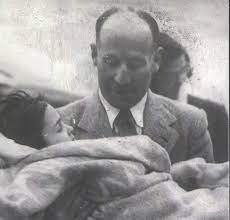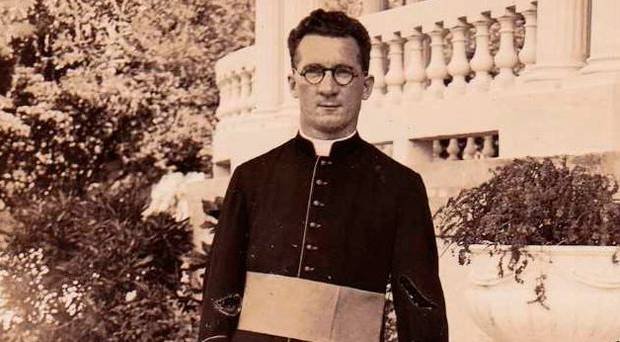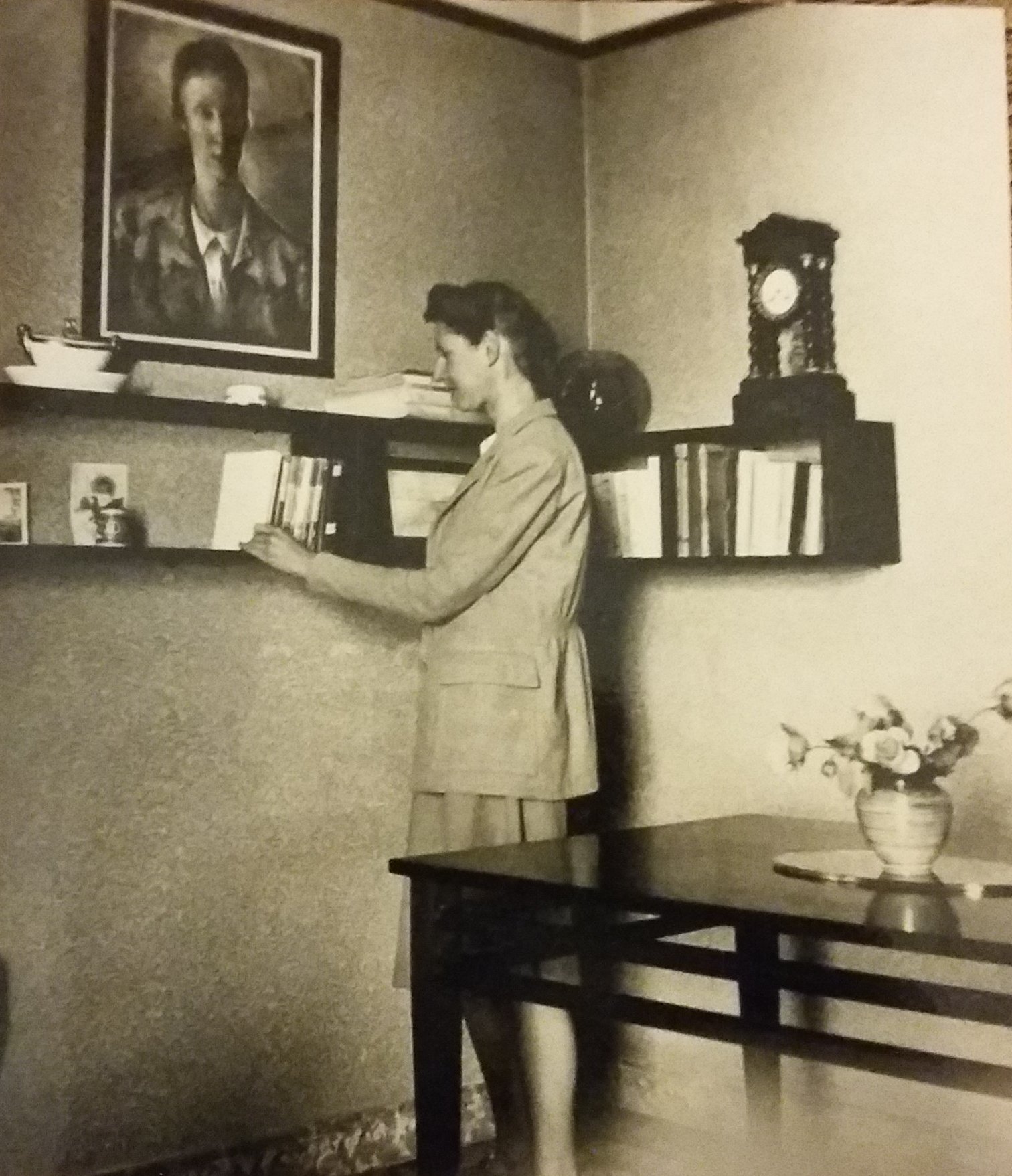Mary Elmes
A Corkwoman and Trinity Scholar, Mary turned her back on a brilliant academic career to volunteer in two of the twentieth century’s worst conflicts. She saved hundreds of Jewish children from deportation to Auschwitz during the Holocaust.
In 2013, she was honoured as ‘Righteous Among the Nations’ by Yad Vashem, remembering non-Jewish people who saved lives during the Holocaust. Mary is the only Irish person to have received this honour.
Before the war
The following reproduces with permission extracts from A Time to Risk All by Clodagh Finn.
In a sense, Marie Elisabeth Jean Elmes experienced the turbulence of war from a very young age. She was born on 5 May 1908 into a prosperous – and progressive – home in Ballintemple, Cork city. Her father Edward Elmes was a pharmacist and her mother Elisabeth Elmes campaigned for the vote for women as treasurer of the Munster Women’s Franchise League.
Mary (as she was later called) and her younger brother John both attended Rochelle, a modern and well-equipped school in Blackrock, Cork. The school imposed a “rigid curtain of censorship” in an attempt to keep the political upheaval of the early 20th century out, but without success.
A very young Mary was aware of World War I and, aged seven, knitted socks for soldiers fighting on the front line. The war came much closer to home in May 1915 when the Cunard ocean liner the Lusitania was torpedoed by a German U-boat off the coast of Cork. She and her family joined the thousands who flocked to Cobh to help the survivors. She would tell her children that the heartrending scenes she saw on the quayside that day stayed with her for life.
She also had reason to remember the Irish War of Independence. In 1920, the family business on Winthrop Street was burned out by British forces. Despite the turmoil, Mary Elmes was encouraged to travel and to study. When she finished school, she spent a year in France and came home with near-perfect French. She went on to study Modern Languages (French and Spanish) at Trinity College Dublin where she excelled. In 1931, she won a Gold Medal for academic excellence and, after graduating, a scholarship to the London School of Economics (LSE).
A former professor at Trinity, T.B. Rudmose-Brown, enthused about her “unusual intelligence” and her “exceptionally brilliant academic career”. In London, the accolades continued to come. In 1936, she won another scholarship, this time to study international relations in Geneva.
Mary at her apartment in Perpignan, France.
‘I had a fixed point of view and I went on with it. I was not emotional but rather clinical, like a doctor, or a soldier, I suppose. Luckily, I became hardened. It allowed me to work constantly.’
— Mary Elmes
Mary in Spain
When the Spanish Civil War broke out in the same year, Mary would have been keenly aware of the political background but nothing could have prepared her for the suffering she witnessed when she volunteered to join Sir George Young’s University Ambulance Unit. She arrived in Spain in February 1937 and was assigned to a feeding station in Almeria.
She soon gained a reputation as a shrewd and able administrator who was clear-headed and unsentimental in the chaos of war. As the fascist army advanced, Mary moved eastwards, from Murcia to Alicante and then into the mountains at Polop, setting up and running children’s hospitals as she went. When her father died unexpectedly in Cork at the end of 1937, she missed the funeral because she refused to abandon her post when a replacement couldn’t be found.
She left Spain only when it became impossible for aid workers to stay and then she followed her beloved Spanish refugees over the border into France. Using the skills she had acquired, Mary set up workshops, canteens, schools and hospitals in the hastily erected camp-villages in southwest France.
Mary in Spain, c.1937
2018 November Lecture
Holocaust Education Ireland welcomed Mary Elmes biographer Clodagh Finn for our 2018 November Lecture. She spoke about the life and significance of Mary Elmes.
Clodagh Finn is an Irish journalist who has worked for the Irish Examiner, the Irish Independent and the Sunday Independent. A graduate of archaeology, she is also a regular contributor to Radio Canada.
During the Holocaust
She was single-minded in her work as head of the Quaker delegation in Perpignan. Hundreds of her surviving letters reveal a determined and resourceful woman, but also a very diplomatic one.
Those traits would prove vital when Jews in southwest France were rounded up to be deported from Rivesaltes camp where Mary Elmes spent most of her time.
Surviving documents describe how she ‘spirited away’ nine Jewish children from the first convoy bound for Auschwitz on 11 August 1942. She bundled them into the boot of her car and drove them to the children’s homes she had set up in the foothills of the Pyrenees and along the coast earlier in the war.
Between August and October 1942, Mary Elmes and her colleagues saved an estimated 427 children from Rivesaltes camp.
Her efforts brought her to the attention of the Gestapo and in early 1943 she was arrested and jailed for six months. When asked about it afterwards, she simply said: “Well, we all experienced inconveniences in those days, didn’t we?”
When the war was over, she married Frenchman Roger Danjou in Perpignan and they had two children, Caroline and Patrick. She spoke little of the war or what she had done, refusing all accolades in her lifetime.
In 2011, nine years after her death at the age 93, one of the children she saved, Professor Ronald Friend, nominated her for Israel’s highest award; two years later she was named Righteous Among the Nations. She is the only Irish person to hold the honour, which is given to non-Jews who risked their lives to save Jews during World War II.
Mary Elmes Bridge, Cork City
The Mary Elmes Bridge in Cork was opened in 2019 to commemorate the Irish 'Oskar Schindler' and local Cork hero, Mary Elmes. The Bridge was named in Mary's honour after a public vote.
Mary's late son Patrick Danjou and Holocaust survivor Charlotte Berger-Greneche opened the bridge.
The Mary Elmes Prize in Holocaust Studies
The Mary Elmes Prize in Holocaust Studies is awarded to Transition Year students for projects raising awareness about the Holocaust.
Students are invited to complete a project or a piece of work to raise awareness about the Holocaust, inspired by Mary Elmes and her story. The four categories of submission include art, history, literature and music. Submissions are judged by panels of approved teachers, subject experts and members of Mary’s family.
Students can win a range of prizes, including an invitation to the national Holocaust Memorial Day commemoration at Mansion House, Dublin as a Youth Reader.
1st place in the Art category (2021)
Aoife Sheridan, Clifden Community School
Herstory: Mary Elmes
Commissioned by RTÉ, this animated short film by Dublin-based studio Bowsie reimagines the story of Mary Elmes for present-day audiences. This film was one of six short pieces produced for RTÉ’s Who Your Heroine? campaign, conducted as part of the 2020 Herstory Festival.
Mary Elmes: Documentary On Newstalk
Documentary celebrating the Irish aid worker who saved the lives of many Jewish children during the First World War.
"It’s estimated that at least 80 children were directly saved by Mary Elmes. She never sought any attention for her actions, and her story has only recently become known".
In her new radio documentary feature, ‘Mary Elmes’, premiering this weekend on Newstalk 106-108fm as part of the Documentary On Newstalk Series, producer Bairbre Flood tells the extraordinary true story of Irish relief worker, Mary Elmes, who smuggled dozens of children to safety during WW2.
Read about other heroic Irish people
-

Bob Collis
-

Hubert Butler
-

Msgr Hugh O'Flaherty





